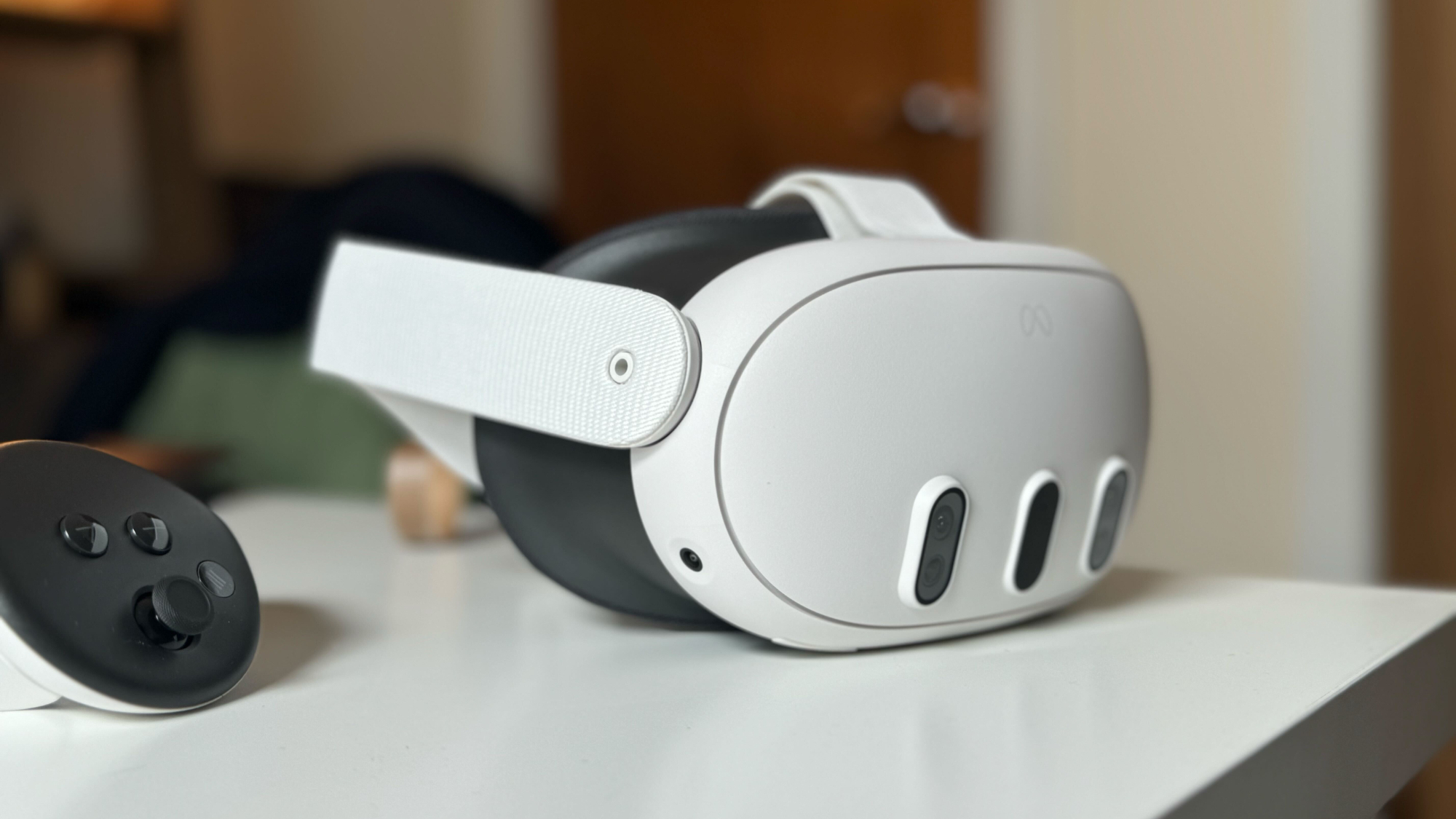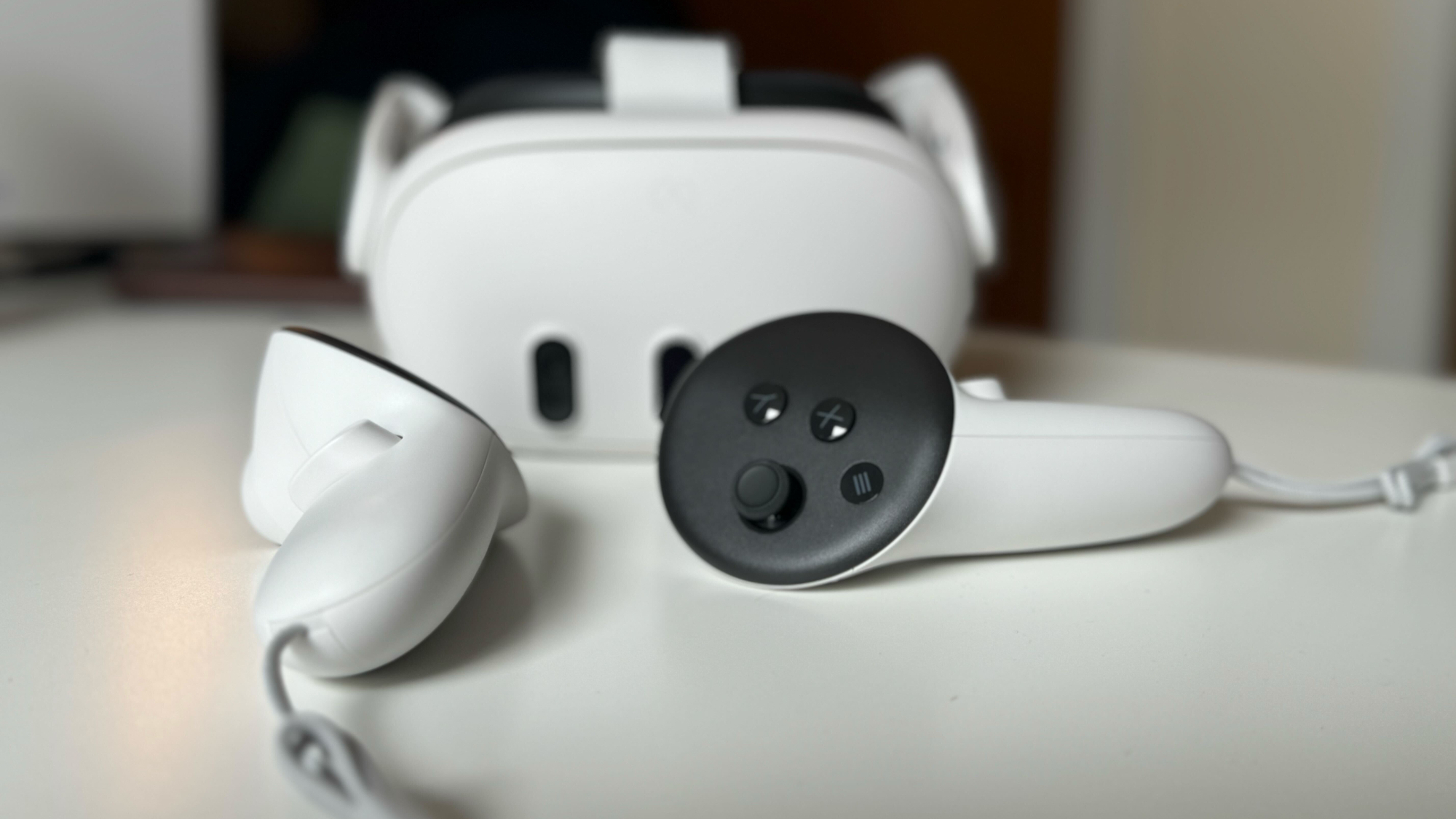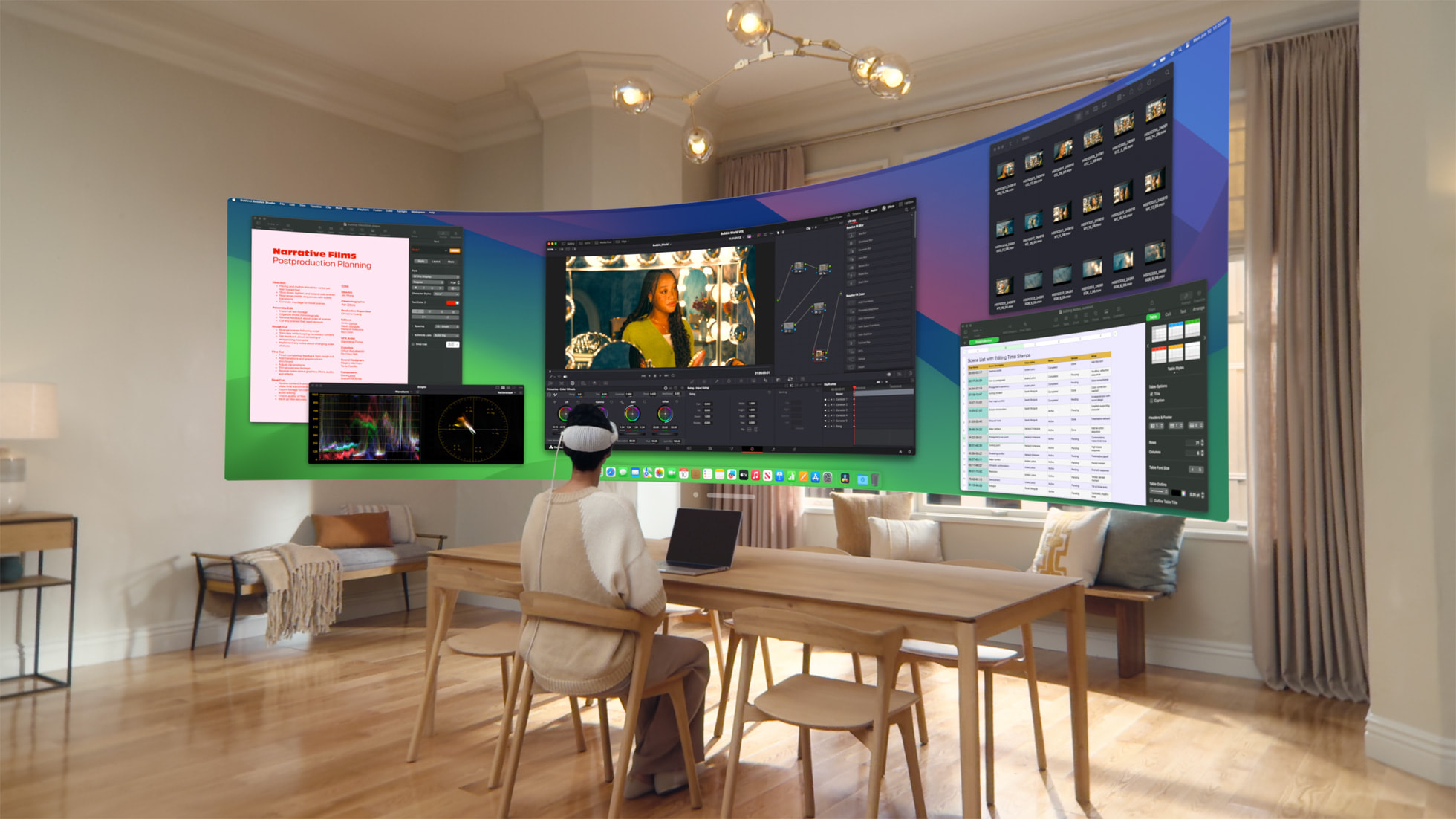5 things Apple Vision Pro could learn from the Meta Quest 3
What can Apple learn from the Metaverse?

iMore offers spot-on advice and guidance from our team of experts, with decades of Apple device experience to lean on. Learn more with iMore!
You are now subscribed
Your newsletter sign-up was successful
Last year with Apple Vision Pro still very much unknown, I postulated about some of the things Apple could learn from its metaverse-cavorting rival Meta. While I had the Quest 2 plastered to my face, I thought about some of the things that could inspire Apple and some of the things Apple should try and avoid. Now, we have Apple Vision Pro live in the flesh, and a newer Meta Quest to have fun with.
Apple Vision Pro has been out for several months now, and after a few weeks of intense hype, it has slowly faded into relative obscurity. This was to be expected, given the Vision Pro’s immense price tag, but the market remains exciting, ripe with potential. So how can Apple bring its spatial computing erm… vision… to the masses? What does it have to learn from mainstream rivals like the Quest 3? I’ve been spending time with the latter ahead of Apple’s UK Vision Pro release. With rumors of a cheaper Vision Pro taking precedence over a second generation, what changes can Apple make to give its headset more appeal and buoy interest? Here are five things I think it could learn, with one eye on making the headset cheaper overall.
Hand controls are fun

I get it, controlling visionOS by waving your arms around like Stephen Strange is cool I really do. But hand controls are fun. There’s something fantastic about gripping a physical tool as you battle the notes in Beatsaber or even just navigate a simple menu.
Apple Vision Pro boasts a plethora of cameras and sensors, which in part power its futuristic hand and eye-tracking gestures. There are four cameras for the latter alone and a further six world-facing tracking cameras. You have to imagine that jamming all of those cameras is pretty expensive, and I wonder if a cheaper Apple Vision Pro of the future could adopt actual, physical controllers rather than gestures to keep costs down. Apple has plenty of patents to that effect, including a set you can wear as gloves and finger controllers, too.
Beyond cost, there’s something very satisfying about holding controllers and waving them around in VR, particularly while gaming. It evokes shades of the Nintendo Wii or an old arcade shooter — think Duck Hunt, but it's 2024, and the screen doesn’t flicker when you press the trigger. Hand controllers are tactile and accessible, and I’d love to believe Apple hasn’t closed the door on them just yet.
Gaming is fun, too
Apple Vision Pro is an incredibly serious bit of kit. By that, I mean it’s stern-faced and corporate. Vision Pro marketing is all about desks, working, and conference calls. There’s not a lot of fun or whimsy, and while Apple does have a burgeoning list of great spatial games for Vision Pro, gaming remains something of an afterthought whenever it talks about the headset.
Apple has been wrong about products before in this manner. The first Apple Watch was all about communication, yet in its ten iterations the Watch has evolved into a primarily fitness-focused device. Could it be that Apple has missed the mark and that there’s more untapped gaming potential here? I’d say yes, as while using the Meta Quest 3, I’ve absolutely loved playing games like Beatsaber, Assassin’s Creed: Nexus, and Asgard’s Wrath 2. Apple does have some cool spatial games, as I mentioned, but there aren’t many knockout VR titles available on the platform (although Job Simulator is a notable exception).
iMore offers spot-on advice and guidance from our team of experts, with decades of Apple device experience to lean on. Learn more with iMore!
I would love a cheaper “Arcade” version of the Apple Vision Pro to focus on spatial and fully immersive VR titles, perhaps even to the detriment of some other features. Perhaps the solution isn’t a totally different headset (I’ll get to that in a moment), but I think Apple might have missed at least some of the point of Vision Pro’s gaming potential. The Meta Quest 3 might be a bit too unserious for some, but I bet there’s a balance to be found in between.
Let me plug this thing in

From where I’m sitting, the Meta Quest 3 boasts one major advantage over the Apple Vision Pro, USB connectivity. You can plug your Meta Quest into any compatible PC with a USB 3.2 cable and enjoy AAA PC VR gaming. I would love to see a future Apple Vision Pro model that supports tethering with some of Apple’s other products.
Of course, the Mac is an obvious candidate and would let users leverage Apple silicon in Apple’s best MacBooks and desktop Macs for gaming or productivity. I can see that Apple Vision Pro has a big advantage when it comes to wireless connection, its Mac Virtual Display feature now provides users with a wraparound ultra-wide display equivalent to two 4K monitors. However, this is still limited by the Vision Pro’s battery life, and I can’t help but think there’s a gap in the market for wired connectivity here too. Heck, if Apple really wanted to blow the market wide open, it could try to incorporate support for other platforms, such as Windows PC. This is, of course, a pipe dream, but wired, tethered connectivity could be a big boon to Vision Pro.
Multiple models for the win
Apple Vision Pro is barely six months old, so this isn’t a criticism. However, the company currently only offers one Vision Pro model, compared to Meta’s three. In fact, Meta has taken a leaf out of the Apple Watch playbook here, offering a very cheap option (the old Meta Quest 2), the mainstream Quest 3, and the premium Meta Quest Pro. That’s three different headsets with different budgets and capabilities that vastly increase the lineup’s appeal. Indeed, the Quest Pro is arguably a much more serious offering more akin to the thrust of Vision Pro, showing a multi-model lineup could offer something for everyone. I’m heartened by rumors that Apple has put Vision Pro 2 on hold in favor of a cheaper option, but even a vastly reduced option could still cost as much as $2,000. Here’s hoping one day we’ll get a more comprehensive Vision Pro lineup and favorable pricing to match.
Apple needs a franchise VR title

As I’ve hinted at a lot so far, I think Apple needs to do a lot more to emphasize just how cool gaming on a spatial headset is. To that end, hours of Beatsaber have convinced me that Apple needs a franchise VR hit. Most people probably haven’t heard of the Meta Quest, or wouldn’t know its exact name or features, but I guarantee that most people have seen a viral video of someone playing Beatsaber. It’s an iconic title that has really catapulted VR gaming into the mainstream, and I think Apple needs to pull off something similar. I don’t know which title is the answer, but Meta has seen success with unique VR spinoffs like the aforementioned Assassin’s Creed: Nexus. As such, it doesn’t need to be an all-singing, all-dancing AAA port to be a success, but Apple needs to find a developer that can deliver a hit title with viral potential and mass appeal. This last one is much subtler and won’t really matter if Apple can’t figure out how to make Vision Pro cheaper and more appealing, but right now Vision Pro doesn’t have an iconic title, and I think it needs one.
Conclusion
There’s plenty to like about both the Meta Quest 3 and Apple Vision Pro, but that doesn’t mean Apple can’t learn a thing or two from a more popular, mainstream device. At the very least, all signs point to Apple’s plans to bring the price of Vision Pro down. Who knows, maybe one of these ideas will make the cut!
Meta Quest 3: $499 + Asgard's Wrath 2 (worth $59.99) at Amazon
There are no specific savings on the Meta Quest 3 right now, so your best bet is this bundle that gets you a $60 game included. Asgard's Wrath 2 comes bundled with the latest Quest and is a significant upgrade on the Quest 2. It might be more expensive, but it's still cheaper than Apple Vision Pro.

Stephen Warwick has written about Apple for five years at iMore and previously elsewhere. He covers all of iMore's latest breaking news regarding all of Apple's products and services, both hardware and software. Stephen has interviewed industry experts in a range of fields including finance, litigation, security, and more. He also specializes in curating and reviewing audio hardware and has experience beyond journalism in sound engineering, production, and design.
Before becoming a writer Stephen studied Ancient History at University and also worked at Apple for more than two years. Stephen is also a host on the iMore show, a weekly podcast recorded live that discusses the latest in breaking Apple news, as well as featuring fun trivia about all things Apple. Follow him on Twitter @stephenwarwick9

